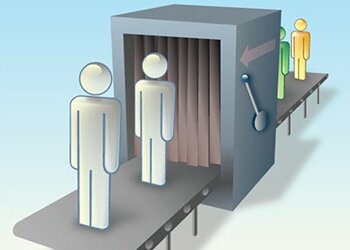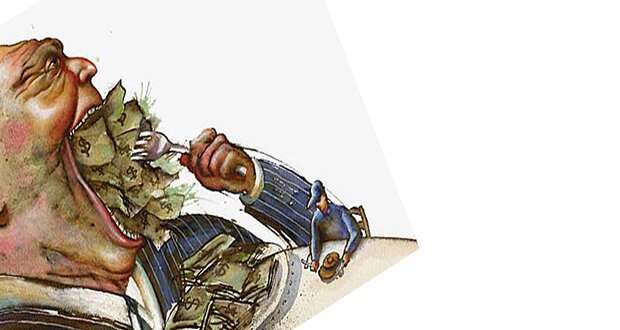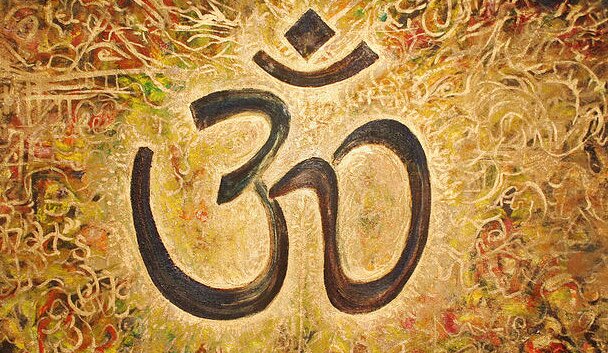So, here you are asking the question, “What is Sociology?”
Well, I have to say, “Congratulations!” Congratulations because, as I’m here to tell you, sociology is no ordinary academic discipline and learning about it, or learning what it has to offer, is no ordinary intellectual voyage. The truth is, by asking the question, “What is sociology?” you are embarking on a journey that will take you into the depth and heart of the world that surrounds you not merely as an observer and not merely as a participant, but as a creator as well. You see, sociology is basically the study of the world that we (and be “we” I mean human beings) create. Unlike psychology which is the study of your thoughts and emotions, or history which is the study of past (usually violent) actions, sociology looks at the world as we have created it and in so doing, it explains it right down its very human core.
Now I know what you’re thinking (or at least I like to think I do). You’re thinking, “Well that’s all very fine and good for you sociologists, but I didn’t create this world that I live in. I was born into it! It was there “as is” when I came into existence. Other people structured this world,” you are saying, “and I didn’t have a lot of choice or power over it at all.”
What can I say to that?
You are, of course, correct.
The world “as it is” was there when you were born and nobody asked whether you liked it or not. You were plopped into this world and its institutions and ways of existing, and nobody asked your opinion about it. Indeed, as soon as you were born you were inserted in the world, into The System as I like to call it, according to some other person’s expectations and preferences, and you couldn’t say a single thing about it.

Consider…
As soon as you were born you were immediately assigned one of two genders, and nobody asked you if that was OK. If you have a penis the nurse assigned you to the male gender by putting a blue blanket on you to identify you as male, and vice versa. Once your gender was assigned, you were handed off to your parents for socialization.1 Then, in the years that followed, you learned from your parents, teachers, friends, television, and maybe even the police, all about the “rules” of gender. If you are a boy, don’t cry. Think like this. Behave like that. If you are a girl, nurture the little ones. Think like that. Behave like that. It was a gradual process, and you may only be becoming aware of it now; but even so, and contrary to what I say in the opening, you were in fact inserted into a family, culture, and society that you did not choose, assigned a gender that you did not agreed to, and trained in rules, values, norms, religion, science, and culture before your brain was big enough to know, understand, care, choose, or resist what was going on. Clearly, you did not create the world that you live in.
Right?
Wrong!
Just because you were merely plopped into a world that was pre-made and taught (I would say forced) to live and learn pre-existing rules, norms, routines, and so on, does not mean you don’t create the world around you, because you do. It may not be obvious to you at the start, but it is a fact. As soon as you start “following the rules” and “playing the game” you begin to participate in the creation and re-creation of the social world around you.
And it doesn’t take that long to become part of the process.
By the time you are four, you have already begun to provide support for the System. By the time you are four, you have learned the gender rules, for example, and are by that time a “willing participant” (some might say “puppet”) in the adoption and enforcement of gender norms, values, and rules. You play with pink toys if you are a girl and blue toys if you are a boy and you think and act appropriately for your gender. You recreate the system by your tacit and unconscious acceptance of the rules.
Of course, who can blame you? At the shiny new age of four, you don’t have the intellectual capacity to know what is going on; however, your understanding is not the point. The point is that, conscious or not, your acceptance of the rules, and the actions and behaviours that flow from that acceptance, means you recreate the System. And notably, it is not that you are just a system creator. You are also a System Enforcer. Even at the tender age of four, you police the gender boundaries! When others around you violate the pre-established rules of gender, i.e. if a boy acts too effeminate or a girl wants to play with trucks and cars, you become a gender cop. You yank the truck away from the tomboy or laugh at the girly man boy. You point fingers and whisper, and sometimes you get violent and aggressive. Whether you know it or not, whether you like it or not, you are creating, recreating, and actively enforcing the System. You are not a passive receptacle of the system; you are an active creator of this world!
And know, it is not just gender you enforce. By the time you are a grown up, your enforcement of the rules and re-creation of the social order extends to every aspect of life and to every institution that you participate in. You act like a student; you act like an employee; you act like a member of the “faithful” (maybe you go to Church); you act like a good citizen of a functioning liberal democracy. You follow all the rules, you do all the right things, and if somebody else steps out of line, you become an enforcer as you step in to save the day (i.e enforce the System). This is the society we live in and you are the captain of its direction. This is how the social order is maintained and preserved. This is how society goes on from decade to decade. Each generation is assigned and selected, fit in and taught, and each generation accepts, steps up, and creates the social order anew. Of course, as a teenager, you might rebel. As a teenager, you might look at the world and say “WHAT?” As a teenager you might see its all messed up and you might want to pull out, reject, or even try and change things. But the System is powerful, resistance is futile, and by the time you are thirty you’ve generally settled down, picked your place, and become a co-creator of the world, such as it is.
Now, please understand that I’m not making a judgment here about whether your actions in re-creating the social order are right or wrong. That is something that you can decide for yourself. As a sociologist, I’m just pointing out that despite the fact that you were not asked and you didn’t know, nevertheless, you come to accept and then recreate the world around you. It is imposed on you at first, but eventually you become an active participant in creating the social order.
It is nothing to be ashamed of.
We all do it.
We all “grow up” and we all fit in. We all learn to follow the rules. We all learn to act according to institutional parameters, and in doing so, we all re-create the institutions of our social order. It’s what we do. It’s what we’ve always done. Since as far back as our hunter-gatherer ancestors, human beings have created and re-created their societies. And that’s a fact! And that is what sociology is interested in. Sociology is interested in the world that you have created. If we were to define sociology I would thus say that sociology is the scientific study of the society that you (that we) create.
Now, I don’t know about you, but for me that makes sociology pretty special. The fact that sociology takes as its starting point the society that we create (i.e., the social order) is what attracted me to sociology in the first place. Before I got into sociology, I had tried several disciplines. I tried engineering, chemistry, and took an extended jaunt into psychology, but I was never really excited by the materials in those other disciplines as I was with excited with sociology.
Indeed, I cannot remember my engineering or psychology classes, but I do remember my first-year sociology course, taught by John Conway at the University of Regina in Saskatchewan. Here, I thought, was a discipline that explained things. Here was (is) a discipline that knew what was going on!
In my first year, I learned about the leaders of sociology and the different “types” of sociology. I also learned many different explanations for things that I had always wondered about. I learned, for example, why I had such a bad experience in school as a child and why we (my single-parent mom, my brother, and I) were always so poor. It was because of structured inequalities and social biases against single women (biases that still exist). I also learned about social classes, racism, classism, capitalism, fascism, and communism. I learned about gender and socialization, social control, and a plethora of other fascinating sociological concepts, facts and theories all of which explained the world to my satisfaction!! From the very first day, I was hooked. This was what I wanted to know about! I wanted to know about the world that I had been dropped into and sociology fit the bill exactly. Sociology provided that knowledge. Sociology explained the world! Using the tools and methods provided by sociologists, I came to understand the world we live in like never before. I also came to understand that we create the world. We are born into it that is true, but in our day-to-day actions and inactions, we recreate and reinforce it as well.
As you might guess, this did not make me very happy because as I had suspected as a young adolescent and teenager, and as I learned in full detail when I took a few sociology courses, the world we live in is a very messed-up place. We live in a world of ghastly contrasts: Hollywood stars and corporate moguls jet around in private planes while tens of thousands of children die every year from the disease and despair of starvation (Word Hunger Education 2018), where women, who no matter how hard they try, often end up poor and alone while ex-husbands live carefree lives, where the working poor class struggle to feed their families while corporate executives grow fat on seven-figure salaries and bonuses. Power for some, hunger for others. Privilege for a few, wage slavery (or literal slavery and child slavery in the sweatshops and sex shops of the world) for the rest (Wakefield 2016).
Yuck!
As sociologists revealed, it truly was a world of ghastly contrasts….
Watch the video Money Moksha
https://www.youtube.com/watch?v=opwUrGVc8dA
…the more I descended into the depths of the discipline of sociology, the more I realized just how ghastly it all was. By the time I was done my degree, I felt that there was very little that was pretty about our world. I was like the Grim Travelers from Bruce Cockburn’s song of the same name, looking at the world and weeping and angry at all the suffering and the pain.
Grim Travelers
Ministers meet—work on the movement of goods
Also work on the movement of capital
Also work on the movement of human beings
As if we were so many cattle
Grim travelers in dawn skies
See the beauty—makes you cry inside
Makes you angry and you don’t know why
Grim travelers in dawn skies
We created the world it is true, but the world we created was an ugly, ugly place.
Now, I realize that I may not be making a good case for the study of Sociology. Who wants to study in such a grim and depressing discipline after all? However, I later realized that no matter how bad the world is, how unfair or unwelcome it seems, or how dysfunctional the “structures and functions” are, it is still our world and we created it. We created the world. We can change the world! We create it with our actions (or inactions, as the case may be); therefore, we can change the world! For me, this is the power of sociology, and it is what redeems us from the harsh sentence that sociology seems to impose. Sociology (and related disciplines like Social Work and Gender Studies) gives us the tools we need to change society, and no other discipline can do that. Medicine allows us to manage our sophisticated bodies; engineering allows us to build things; psychiatry provides us a way to be happy within the confines of the world we live in; and, history catalogues the past abuses of power and privilege; but only sociology (and disciplines like feminism, political science, etc.) can give us the tools to change the world.
If I had a rocket launcher…
Here comes the helicopter
Second time today
Everybody scatters
And hopes it goes away
How many kids they’ve murdered
Only God can say
If I had a rocket launcher
If I had a rocket launcher
If I had a rocket launcher
I’d make somebody pay.
Bruce Cockburn, If I had a rocket launcher….
[Listen on Youtube]
For those of you who are cynically observing the state of the world and wondering how I could make such a claim, please be patient. In truth, sociology has already made a big difference in the world. As you study sociology you will learn about past and present sociologists and their research. As you read, and as you begin to reflect on the world as it is now and as it was a hundred years ago, you will see the truth in the claim. Sociologists and their students have often been at the forefront of social change. For example, the works of one of our founding patriarchs, Karl Marx, spawned a century of social change and social revolution. I’m not thinking about the failed Russian socialist experiment, but about ten thousand “little revolutions” that Marxist theory spawned around the world, from socialist revolutions in Latin and Central America to labour movements and unions in the Western world. Marxism has had an incredible and positive impact (though often unacknowledged in Western capitalist nations) in our world, and that is something to be proud about. And it is not only the ideas of Marx, but those of other sociologists, social scientists, and their students that are often at the front of social change.
Of course, sociology and the work that sociologists do is not always revolutionary. There are conservative sociologists who tend to support the status quo because that is what they feel is the right thing to do, and that is fine. The point of this little essay is not to fire a salvo or engage in criticism; the point of this essay is to simply highlight the fact that sociology gives us, at least potentially, the ability to transform the world. This makes sociology (in my humble opinion) the most a powerful and exciting scientific discipline there is. Sociology teaches us about the world; sociology teaches us how we create it; sociology teaches us how to change it.
In closing this short essay I would like to draw your attention to the world “as it is” right now. While I can say that sociology has given courageous souls the ability, knowledge, and skills needed to change society, social change it is not easy. When we look at the social world “as it is” we can see that there is still a lot of work to be done; plus ça change (the more things change, the more they stay the same). Despite advances, we still live in a world of rank inequality and power differentials. Despite progress, regressive interests pull us back. Indeed, and arguably, even in the face of progress, some things are getting much worse. These days one percent of the world population owns fifty percent of global wealth (Elliott 2015). In a world of child hunger and starvation, that’s an obscene statistic. And it just gets worse the deeper you go (Sosteric 2016); so, a fair question might be, “If sociology is so powerful, why haven’t we seen more or faster change?”
There’s class warfare, all right, it’s my class, the rich class,
that’s making war, and we’re winning. Warren Buffet- Richest Man on Earth.
As it happens, sociology has an answer for that too! As you move through your sociology studies you will learn why the world seems to resist and why people must struggle for change, often for decades. You will learn about the nature of money and the economy and how it is the root of our social ills; you will learn about power in society and about why some people have lots of it and others have little. You will come to understand a bit about how those with power use that power to resist the drive for progressive social change. You will learn about media concentration and population programming—how the very rich use the media to control our perceptions of the world, for example. You will learn that inequality—whether it is gender inequality, class inequality, or racial inequality—benefits some people (usually those with power), and you’ll learn that the people who benefit from inequality actively resist change. You will even learn how our socialization practices and our institutions actually support systems of inequality and, in the case of our school systems, actively go about teaching us to accept and function in the pre-existing social order. Ultimately, you will see the world as a contested place where some with power use it as a mechanism to gain advantage and control over others, while “the others” suffer it out and sometimes even die. In sociology, you will learn the sad truth which is that we are not, despite the propaganda, created equal. Some of us (corporate leaders, government lawmakers, rich power brokers, the monarchs of foreign lands) have more wealth and power simply by virtue of being born in a certain body, and these people use the wealth and power they have to create the world they wish. By the end of it you will know that we create the world we live in; but, you will also know that some people have more power to create than others. This is an important, if depressing, sociological insight that we often, though not always, miss.
In the end though, sociology gives us a choice. We can accept the world “as it is” or we can courageously step onto the path of “co-creation.” If we accept responsibility for our world, we can start to change the world for the better at whatever level we can reclaim power. It is a big step, a big journey, and it is not easy, that’s for sure; but that is the gift, the choice, and the challenge of sociology. The gift that sociologists give you is true knowledge about the world you live in; the choice is what you are going to do with that knowledge; the challenge is actually going out into the world and doing it. Whether you make the world a better place, sit on your laurels, or ride the privilege train is entirely up to you. In the end, you should have no illusions. Sociology is the study of the world that we, that you, create. So take what you learn and go create. It is what, as a human, you are designed/destined to do.
References
Elliott, Larry. 2015. “New Oxfam Report Says Half of Global Wealth Held by the 1%.” The Gaurdian, 2015.
Sosteric, Mike. 2016. Rocket Scientists’ Guide to Money and the Economy: Accumulation and Debt. St Albert, Alberta: Lightning Path Press. https://amzn.to/2WR8Guy.
Wakefield, Jane. 2016. “Apple, Samsung and Sony Face Child Labour Claims.” BBC News, January 19, 2016, sec. Technology. https://www.bbc.com/news/technology-35311456.
Word Hunger Education. 2018. “World Child Hunger Facts – World Hunger Education – World Hunger News.” Hunger Notes. 2018. https://www.worldhunger.org/world-child-hunger-facts/.
Mike Sosteric (Dr. S.) |
|
|
Just another loud mouth sociology professor, teaching sociology courses at Athabasca University. Check me out here at the Socjourn, over there at The Conversation and at academia.edu. |











